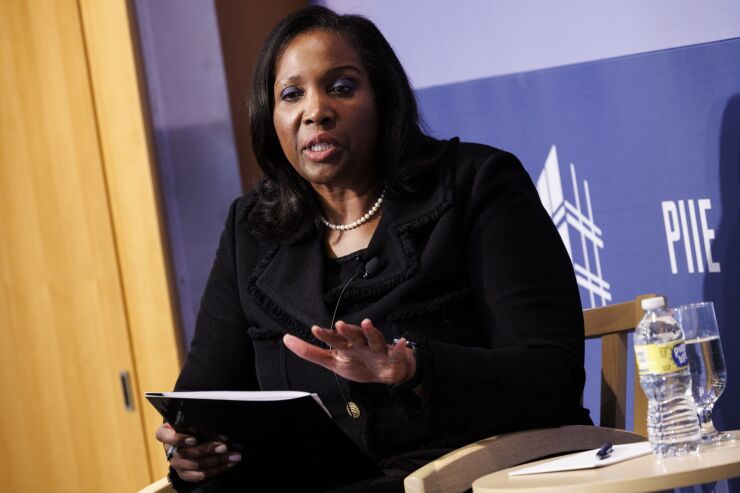- Key Insight: Federal Reserve Gov. Lisa Cook says emerging risks are arising over how artificial intelligence may influence financial markets.
- Expert quote: "Recent theoretical studies find that some AI-driven trading algorithms can indeed learn to collude without explicit coordination or intent, potentially impairing competition and market efficiency." — Federal Reserve Gov. Lisa Cook.
- What's at stake: Public officials have spoken at length in recent months about the promises or perils of AI for the economy, but Cook's remarks are among the few to consider AI impacts on market function.
Federal Reserve Gov. Lisa Cook warned Thursday that generative artificial intelligence tools have the potential to shape market dynamics.
Speaking at Georgetown University's McDonough School of Business, Cook, who chairs the Fed board's Committee on Financial Stability, said AI trading systems could create market disarray through collusion or manipulation, though she noted research shows the likelihood is small.
"Recent theoretical studies find that some AI-driven trading algorithms can indeed learn to collude without explicit coordination or intent, potentially impairing competition and market efficiency," Cook said.
Cook said AI trading systems can steer market behavior, citing a recent study that found self-learning algorithms are capable of discovering spoofing strategies. She said the systems were placing large orders they never intended to execute to create false impressions of market demand.
The Fed governor said that in the future AI systems could come to the market that "operate with greater opacity, execute more complex trades, and better hide manipulative intent."
Cook added that the unexplainability of some complex algorithms could make it difficult to regulate or audit these tools.
"There are growing concerns that results obtained from complex AI models may be difficult to explain or rationalize by human experts — the
Nonetheless, Cook said that alongside tools that can be used with malicious intent, new technologies are emerging that can detect manipulative and collusive behavior.
"Thanks to improving surveillance capabilities, AI technology could ultimately strengthen market integrity and enhance market liquidity," Cook said. "Trading venues are also taking steps to mitigate the risk stemming from the 'black box' problem associated with AI-enabled trading algorithms."
Other Fed governors, including Michael Barr and Christopher Waller, have also recently commented on how AI will impact the economy, particularly the labor market.
However, Barr, the former Fed vice chair for supervision, emphasized that he remains optimistic about how AI will affect communities, saying he believes it will ultimately help the economy grow.
"I think even if there are some short-term dislocations, what we've seen with the introduction of technologies in the past is that over the long term, new jobs are created and jobs that exist change to be more productive for the worker," Barr said. "Workers get paid more, so it could increase real wages for people."
Waller has similarly argued that the
Cook's







